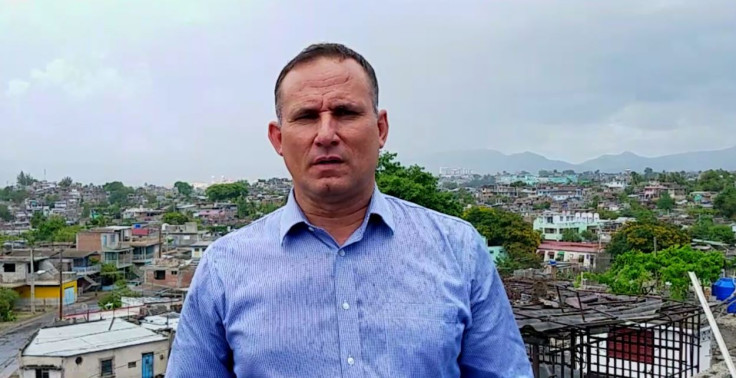
Prominent Cuban dissident Jose Daniel Ferrer said conditions are given for the "end of the tyranny" in Havana and called on U.S. President Donald Trump for help.
Ferrer, who on Monday was released from prison and exiled from the country, said his "request for the administration is that we need as much support as possible so, in three and a half years, before this administration ends, we no longer have tyranny in Cuba."
During a press conference in Miami, Ferrer added that "all factors are given so these end up being the last days of the tyranny." He went on to say that negotiations from the Trump administration were "key" so he would be freed from prison and taken to the U.S.
Ferrer went on to detail that the current situation in Cuba is a "national catastrophe." "It is a situation of extreme injustice, of hunger. There is barely any electricity, medical services, transport, buildings are crumbling," he added.
Ferrer, 54, is the founder of UNPACU, the Patriotic Union of Cuba, and has been one of the most outspoken critics of the Cuban regime for more than a decade. According to The Miami Herald, he has endured repeated arrests, intimidation campaigns, and harsh prison conditions over the years. His most recent imprisonment began earlier this year, after the government revoked his conditional release without public explanation. He was taken into custody again in April, and for months, no images or updates were released, sparking fears among human rights groups that he was being held incommunicado.
In early October, Ferrer released a handwritten letter from prison describing his conditions as inhumane and accusing Cuban authorities of physical abuse, sleep deprivation, and psychological torture. He said he had been kept in a punishment cell, denied medical care, and subjected to ongoing threats. In the letter, he expressed fear that his wife would be imprisoned next and that their son could be institutionalized. He explained that exile had become the only option left to protect his family.
"After 178 days of blows, torture, humiliation, threats and extreme conditions, I had to accept the exile," Ferrer wrote. "Not because I fear prison or death, but because I fear for my family. They were next."
Ferrer landed in Miami with his wife, Dr. Nelva Ortega, and their son. Supporters welcomed them at the airport with Cuban flags and chants of "libertad." His arrival was emotional, but not without controversy. Critics argue that exile is a strategy used by the Cuban government to defuse internal dissent while claiming cooperation abroad.
© 2025 Latin Times. All rights reserved. Do not reproduce without permission.





